Courses
In the first two academic semesters (October-January and February-May), students are required to complete eight courses while, in the third semester (June-October), they must complete a dissertation of min. 20,000 words.
For the academic year 2019-20, the following courses are offered:
AUTUMN TERM (compulsory courses)
SPRING TERM (optional courses – student chooses four)
Note: Not all elective courses are guaranteed to run in any one year. A minimum of four students is required for a course to run.
Course attendance is compulsory. Students sit exams at the end of every (teaching) semester. If a student fails more than two courses in total, she is dismissed from the program. A student who fails one or two courses (and no more than two in total) may repeat the exams in September. In case the student fails only one exam in September and her average mark (including the latter course) is at least 6.00, then she can proceed to write her thesis in order to graduate. In case the average is smaller than 6.00, the student is dismissed from the program. Failure in more than one exam in September constitutes a failure of the degree.
In addition to normal coursework, students have the option to take an Eastern European language at the introductory, intermediate or advanced level, selecting from the pool of languages offered by the Department’s undergraduate program. There is no extra fee for the language course but the Department’s and respective language tutor’s approval is required.


